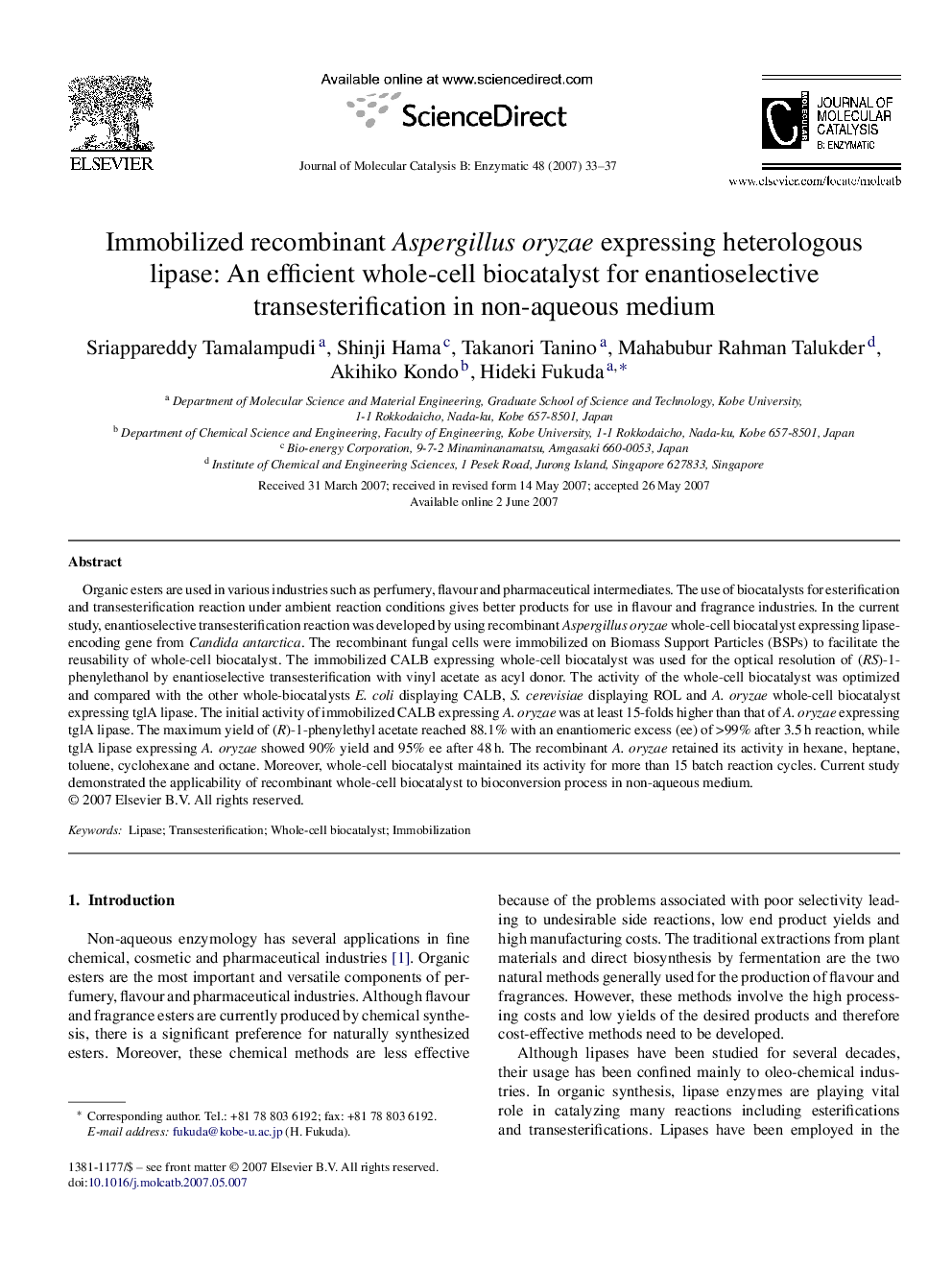| Article ID | Journal | Published Year | Pages | File Type |
|---|---|---|---|---|
| 71186 | Journal of Molecular Catalysis B: Enzymatic | 2007 | 5 Pages |
Organic esters are used in various industries such as perfumery, flavour and pharmaceutical intermediates. The use of biocatalysts for esterification and transesterification reaction under ambient reaction conditions gives better products for use in flavour and fragrance industries. In the current study, enantioselective transesterification reaction was developed by using recombinant Aspergillus oryzae whole-cell biocatalyst expressing lipase-encoding gene from Candida antarctica. The recombinant fungal cells were immobilized on Biomass Support Particles (BSPs) to facilitate the reusability of whole-cell biocatalyst. The immobilized CALB expressing whole-cell biocatalyst was used for the optical resolution of (RS)-1-phenylethanol by enantioselective transesterification with vinyl acetate as acyl donor. The activity of the whole-cell biocatalyst was optimized and compared with the other whole-biocatalysts E. coli displaying CALB, S. cerevisiae displaying ROL and A. oryzae whole-cell biocatalyst expressing tglA lipase. The initial activity of immobilized CALB expressing A. oryzae was at least 15-folds higher than that of A. oryzae expressing tglA lipase. The maximum yield of (R)-1-phenylethyl acetate reached 88.1% with an enantiomeric excess (ee) of >99% after 3.5 h reaction, while tglA lipase expressing A. oryzae showed 90% yield and 95% ee after 48 h. The recombinant A. oryzae retained its activity in hexane, heptane, toluene, cyclohexane and octane. Moreover, whole-cell biocatalyst maintained its activity for more than 15 batch reaction cycles. Current study demonstrated the applicability of recombinant whole-cell biocatalyst to bioconversion process in non-aqueous medium.
